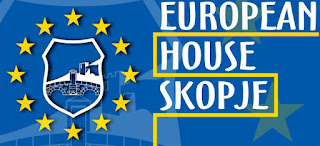Internal political tensions in 2007 have diverted the Republic of Macedonia's political institutions away from the priorities of European integration and delayed reform, according to EU foreign affairs ministers at their December 10 General Affairs and External Relations Council. The Council encouraged all political parties to deepen political dialogue and cooperation, especially on interethnic relations, so as to be able to move ahead in the EU accession process.
Reforms should be speeded up in judicial and public administration and in the fight against corruption, and police reform should be implemented faster. Unemployment and the general business environment also needed attention, said EU ministers. The Council also issued an appeal to the Government to "make renewed efforts, with a constructive approach, to find a negotiated and mutually acceptable solution on the name issue with Greece, under the auspices of the UN, thereby contributing to regional cooperation and good neighbourly relations."
The EU-the Republic of Macedonia Joint Parliamentary Committee, meeting in Brussels on 26-27 November called for accession negotiations to start as soon as possible, and encouraged the government, the opposition and all the stakeholders in the Republic of Macedonia to do their utmost to carry out the necessary reforms to fulfil the necessary criteria. Among its other conclusions, it noted "the difficulties faced by citizens of the Macedonia due to the non-recognition by Greece of its passports, and the situation linked with the name issue; calls on both parties to honour commitments as outlined in the Joint Declaration annexed to the text of the EC-the Macedonia Visa Facilitation Agreement to re-assess the issue, as a matter of priority".
The EU is to abolish as from 1 January 2008 a double-checking system on imports of steel products from the Republic of Macedonia.
Search This Blog
Subscribe to:
Post Comments (Atom)
European House Skopje is an NGO in Macedonia that promotes European values, democracy, human rights, and regional cooperation. Its...

-
Small Business Ideas You Can Run From Home If you have a desire to start a home-based business, you’re part of a growing trend. As a matter ...
-
Decentralising Structural Funds' management to the regional level Decentralised programming = Decentralised implementation? Or, Why (f...
-
• Chapter 1: Doing Business In Macedonia • Chapter 2: Seling Products and Services • Chapter 3: Leading Sectors for Export and Investment • ...
No comments:
Post a Comment